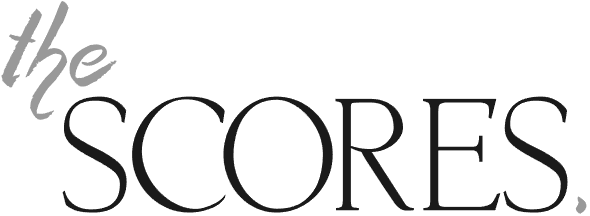Review by Suzannah V. Evans
Rachael Boast’s Void Studies (Pan Macmillan, 2017) is laced with images of snow, water, blurrings, and undoings. It is appropriate, then, that the collection itself is based on an idea never implemented by the French Symbolist poet Arthur Rimbaud. In her notes, Boast explains that the nineteenth-century poet considered writing a book entitled Études néantes – a translation of which Boast uses as her own title – containing poems ‘which would be written in the spirit of musical études and would go beyond the temptation to convey any direct message’.
This is the spirit in which we should read Boast’s collection. Her poems are fragile musical moments in which images and key words echo across and between poems, containing secrets that must be teased out by the part of our brain that is unconcerned with logic. Perhaps for this reason, many of the poems are preoccupied with the state between sleeping and waking, or between clarity and intoxication. ‘The Call’, a poem in the first part of the collection, exhibits several of the tendencies that are characteristic of the volume, and like all of the poems is short enough to be looked at in full:
Stepping through the last of the sky
held by half-asleep mirrors
of the rain storm along the path
by the river where over
the other side the trees uphold
a language picking away
the fabric of reality, the woods
rising with everything to say
at once, with black wings,
with sound shuffling the air.
The poem opens dreamily, using the progressive form ‘stepping’ to imply that, as readers, we have also stumbled into the continuous and eternal present contained by the poem. But who is stepping? And what is meant by ‘the last of the sky’? Perhaps we are not meant to know: the atmosphere that Boast conjures is one of multiplicity, suggestion, and possibility. The mirrors – which are in fact the myriad rain drops falling and reflecting their surroundings – fragment and confuse the landscape; water tumbles as rain and weaves as a river; woods rise up and meet the rain as it falls. Sound shuffles and rearranges the air. In this strange and uncertain dream world, the poem does its own work at ‘picking away // the fabric of reality’.
Other poems document what is ‘at the margin of things’ (‘Flash of Lightening’). Action is incomplete, or frustrated: late nights are ‘unopened letters’ in ‘Afterlife’, reappearing as ‘unsent letters’ in ‘Heat Wave’. Wrong turns are obscured by the ‘corrective contours of snow storms’ (‘Found Poem’) in one of the sonnets in the third part of Boast’s collection. Snow – a phenomenon returned to throughout – offers Boast the perfect white slate in which to inscribe her dreamlike visions, and provides the title to one of collection’s early poems:
As though it had waited all year in the wings
of a sleep-eyed white angel to fall
and did so in an hour, assured of its own
answerless light cast across the garden,
while ice crystals melt from the bright lettering
upheld in the trees overnight,
everything is lost to the river’s deep lay
and to the low note sustained in its shadows,
the roads give and take nothing,
and you can’t get home, although you’re home.
The last lines have the same hypnotic feel to them as those in Robert Frost’s snow poem, ‘Stopping by Woods on a Snowy Evening’, where the speaker has ‘miles to go before I sleep / And miles to go before I sleep’. There is something haunting about this in-between state, this sense of being home-but-not-home, that these lines embody, but this poignancy is answered by the poem’s striking imagery and wording: the ‘bright lettering’ of the tree’s branches, the confidence of the snow in its own light. What is more, these are poems that also have their own easy, slow sensuality. Aside from the scattered references to kisses, certain poems have a fluidity or liquidity about them, an ease in the physicality of ‘unexpected / arousal detaching itself from the body’s breath’ (‘Fireplace’). ‘Ranchera’ is the stand-out poem in this respect:
She’ll sing as if having downed
more than one glass of strong wine,
and loosening herself up gradually
[…]
her voice, an offering to the sky,
her body inhabiting the music
of its dark interiority, as the strength
of her tongue pushes beyond language
and hunger. All night she glides
like a swallow over a mirror of water.
He watches her, his ranchera, in his sleep.
Tied up with the pleasures of drinking, the poem’s eroticism revels in the delights of artistic creation, in song and in the singer’s body ‘inhabiting the music’, as much as it does in the ‘strength / of her tongue’. Whilst the reference to wine might give cause to think of Baudelaire’s poems on the subject, the desire to get ‘beyond language’ also recalls the general aim of the French Symbolist poets. Rimbaud’s flickering presence, then, is never far from these poems.
Boast’s collection is a complex one, where musicality dominates and dreams colour the everyday events of living. The book, however, is only one possible representation of the heady thoughts that inform it, and in her last poem Boast leaves her readers with the sense that the poems attempt to capture something that can never quite be pinned down:
The book is merely a cover. Inside it,
the slow work of love, errata of desire,
something written over what is written there.
Suzannah V. Evans was born in London and studied in St Andrews and York. She has worked in publishing and recently as a sound technician, translator, and interpreter for StAnza poetry festival in St Andrews. Her poetry and reviews have appeared or are forthcoming in Eborakon, The North, New Welsh Review, Tears in the Fence, and RAUM.
